Joint Health Supplements for Golfers: The Ultimate Guide to Keeping Your Swing Strong
Share
Why Golfers Need Joint Health Supplements for Long-Term Performance
Golf might be a low-impact sport, but the repetitive motions can take a toll on your joints, especially your knees, elbows, and shoulders. Many golfers start noticing stiffness and discomfort over time, which can drastically affect their performance on the course. Joint health supplements can help protect these vital areas, ensuring you maintain flexibility, mobility, and, ultimately, your golf swing for years to come.
In this guide, we’ll cover the best joint health supplements for golfers, what ingredients to look for, and how they can improve your game. Plus, we'll share practical tips on choosing the right supplements and provide links to some trusted sources so you can do your own research.
How to Improve Joint Health for Golfers Naturally
Golfers often wonder, "How can I keep my joints healthy naturally?" Besides regular stretching and proper form, supplements are a fantastic way to protect your joints and reduce inflammation. Here’s why joint health is essential for golfers and what supplements can do to help.
The Importance of Joint Health in Golf
Every swing places stress on your joints, particularly your shoulders, knees, wrists, and elbows. (1) Over time, this can lead to common issues such as these:
By taking joint health supplements, you can protect your cartilage, reduce inflammation, and support overall joint function. (5) This is especially important for golfers playing multiple rounds each week or for older players experiencing early signs of arthritis.
What to Look for in the Best Joint Health Supplements for Golfers
When selecting a joint health supplement, it's important to focus on specific ingredients scientifically proven to support joint health and recovery. Here are the top components to seek out:
1. Glucosamine & Chondroitin
Glucosamine and chondroitin are natural compounds found in cartilage. These ingredients are essential for maintaining healthy cartilage, which helps cushion your joints during repetitive movements, such as golf swings. Studies show that glucosamine and chondroitin can help reduce joint pain and slow down cartilage loss, making them vital for golfers aiming to avoid wear and tear. (7)
2. Turmeric & Curcumin
Curcumin, the active compound in turmeric, is a powerful anti-inflammatory that can reduce joint pain and swelling. For golfers who play several rounds a week, turmeric is a great natural option to combat inflammation without relying on over-the-counter pain relievers. (5) Evidence suggests that pairing turmeric with bioperine, a compound found in black pepper, increases the bioavailability of curcumin. (6)
Check out this highly rated article on the benefits of turmeric for athletes for more detailed research.
3. Omega-3 Fatty Acids
Known for their anti-inflammatory properties, omega-3 fatty acids can help reduce joint stiffness and pain. Regular intake of omega-3s is linked to improved joint mobility, particularly for golfers experiencing early signs of arthritis or joint discomfort. (8)
4. Collagen
Collagen supports the structure of cartilage, keeping your joints resilient and reducing the risk of injury. Collagen supplements can enhance cartilage regeneration and help golfers recover faster after a long round. (9) A collagen supplement can also improve your skin, hair, and nails—an added bonus!
5. MSM (Methylsulfonylmethane)
MSM is a popular ingredient in joint supplements due to its ability to reduce inflammation and support cartilage repair. It's commonly paired with glucosamine and chondroitin for a full-spectrum joint health formula. (10)
For golfers serious about long-term joint health, you can find more in-depth research on the benefits of MSM here.
How Joint Health Supplements Can Improve Your Golf Game
Many golfers wonder: "Can supplements really help my golf game?" The answer is yes, and here’s how:
1. Increased Flexibility for a Smoother Swing
Healthy joints are more flexible, which allows for a smoother, more powerful golf swing. Joint supplements, particularly those containing collagen and MSM, promote joint elasticity, making it easier to follow through on your swing without stiffness or pain. (9)(10)
2. Reduced Pain and Stiffness
If you’ve ever experienced pain after a long round of golf, joint health supplements can help reduce inflammation and improve recovery. Omega-3 fatty acids and turmeric are known for reducing swelling, inflammation, and discomfort, allowing you to play more frequently without joint pain. (6)(8)
3. Long-Term Injury Prevention
Over time, golf can put significant wear and tear on your joints, especially if you play regularly. Investing in joint health supplements early on can prevent long-term damage and reduce your risk of developing arthritis or tendinitis later in life.
When to Start Taking Joint Health Supplements
"Should I start taking joint health supplements?" is a common question from golfers, especially those beginning to feel the effects of joint wear. If you experience any of the following, it may be time to consider what golf nutrition supplements can do for you:
- Joint stiffness after playing
- Discomfort or pain in your elbows, shoulders, or knees
- Limited range of motion during your swing
Starting early is key. Even if you’re not currently experiencing joint pain, supplements can act as a preventative measure, keeping your joints healthy and flexible as you age. (5)
Choosing the Best Joint Health Supplements for Golfers
When picking a supplement, it’s essential to choose one with high-quality, scientifically backed ingredients. Look for third-party testing and certifications to ensure the product is free of contaminants, includes the right dosage of active ingredients, and is formulated for optimal absorption. (11)
If you’re unsure where to start, you can check out our detailed reviews of the best supplements for golfers, including our in-depth post on recovery supplements for golfers that focus on post-round recovery.
Other Ways to Support Joint Health Beyond Supplements
While joint health supplements are a fantastic addition to any golfer’s routine, they should be paired with a few other essential practices:
- Stretching and Warming Up: Ensure your joints are loose and ready before you start swinging.
- Staying Hydrated: Dehydration can lead to joint stiffness, so make sure you’re drinking enough water.
- Strength Training: Focus on low-impact exercises, like swimming or yoga to support joint health without putting additional stress on your joints.
Conclusion: Invest in Your Joint Health for a Better Golf Game
Prioritizing joint health is critical for any golfer aiming to play their best game for years to come. By incorporating joint health supplements into your routine, you can enjoy smoother swings, less discomfort, and long-term protection from injuries.
Ready to take control of your joint health? Check out our review of the best golf supplements for recovery and joint support.
References
- Creighton, A., Cheng, J., & Press, J. (2022). Upper Body Injuries in Golfers. Current reviews in musculoskeletal medicine, 15(6), 483–499. https://doi.org/10.1007/s12178-022-09787-y
- Konarski, W., Poboży, T., Poboży, K., Domańska, J., & Konarska, K. (2023). Current concepts of natural course and in management of medial epicondylitis: a clinical overview. Orthopedic reviews, 15, 84275. https://doi.org/10.52965/001c.84275
- Jayabalan, P., Bergman, R., Jauregui, E., Hanaoka, C., & Stoker, A. M. (2022). Acute Physiological Effects of Continuous Versus Intermittent Walking During Golf in Individuals With Knee Osteoarthritis: A Pilot Study. American journal of physical medicine & rehabilitation, 101(5), 460–467. https://doi.org/10.1097/PHM.0000000000001855
- Moon, H. W., & Kim, J. S. (2023). Golf-related sports injuries of the musculoskeletal system. Journal of exercise rehabilitation, 19(2), 134–138. https://doi.org/10.12965/jer.2346128.064
- Mathieu, S., Soubrier, M., Peirs, C., Monfoulet, L. E., Boirie, Y., & Tournadre, A. (2022). A Meta-Analysis of the Impact of Nutritional Supplementation on Osteoarthritis Symptoms. Nutrients, 14(8), 1607. https://doi.org/10.3390/nu14081607
- Heidari, H., Bagherniya, M., Majeed, M., Sathyapalan, T., Jamialahmadi, T., & Sahebkar, A. (2023). Curcumin-piperine co-supplementation and human health: A comprehensive review of preclinical and clinical studies. Phytotherapy research : PTR, 37(4), 1462–1487. https://doi.org/10.1002/ptr.7737
- Zhu, X., Sang, L., Wu, D., Rong, J., & Jiang, L. (2018). Effectiveness and safety of glucosamine and chondroitin for the treatment of osteoarthritis: a meta-analysis of randomized controlled trials. Journal of orthopaedic surgery and research, 13(1), 170. https://doi.org/10.1186/s13018-018-0871-5
- Deng, W., Yi, Z., Yin, E., Lu, R., You, H., & Yuan, X. (2023). Effect of omega-3 polyunsaturated fatty acids supplementation for patients with osteoarthritis: a meta-analysis. Journal of orthopaedic surgery and research, 18(1), 381. https://doi.org/10.1186/s13018-023-03855-w
- Martínez-Puig, D., Costa-Larrión, E., Rubio-Rodríguez, N., & Gálvez-Martín, P. (2023). Collagen Supplementation for Joint Health: The Link between Composition and Scientific Knowledge. Nutrients, 15(6), 1332. https://doi.org/10.3390/nu15061332
- Toguchi, A., Noguchi, N., Kanno, T., & Yamada, A. (2023). Methylsulfonylmethane Improves Knee Quality of Life in Participants with Mild Knee Pain: A Randomized, Double-Blind, Placebo-Controlled Trial. Nutrients, 15(13), 2995. https://doi.org/10.3390/nu15132995
- Wierzejska R. E. (2021). Dietary Supplements-For Whom? The Current State of Knowledge about the Health Effects of Selected Supplement Use. International journal of environmental research and public health, 18(17), 8897. https://doi.org/10.3390/ijerph18178897
Disclaimer:
The information provided in this post is for educational purposes only and is not intended as medical advice. The products and supplements discussed are not designed to diagnose, treat, cure, or prevent any disease. Always consult with a healthcare professional before starting any new supplement regimen or if you have any concerns about your health. The results and effects of supplements may vary from person to person.
